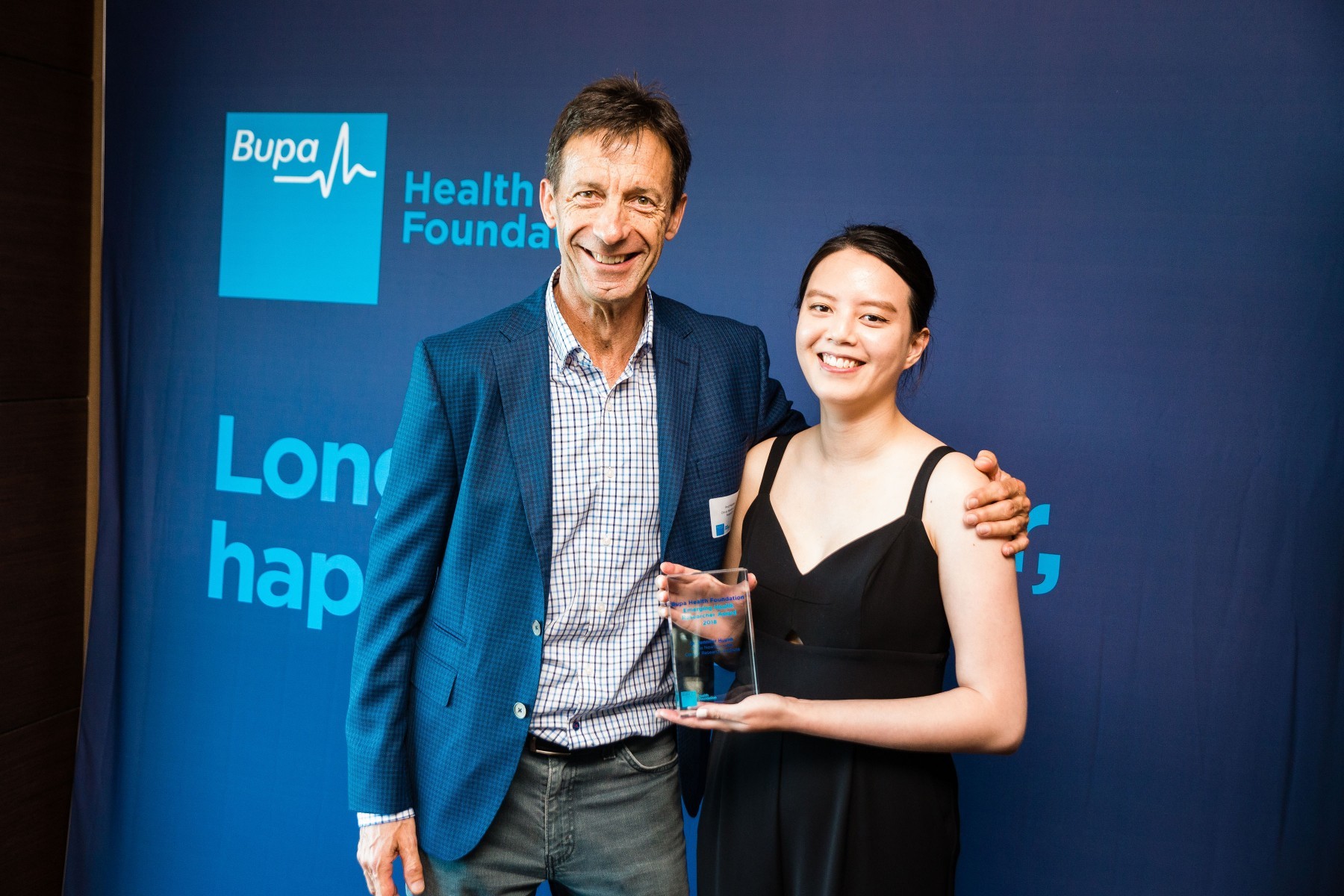Celebrating 10 Years of the Bupa Foundation’s Emerging Health Researcher Award
The Bupa Foundation’s Emerging Health Researcher Award recognises the valuable contribution early-career researchers make toward improving health outcomes for all Australians. This year, the $25,000 Award was open to applications from researchers focused on improving mental health and wellbeing and/or the link between environmental and human health.
Bupa has invested more than half a million dollars in the award over the past 10 years, helping further the careers of early career researchers and supporting their transition to leaders of the health and medical research sector.
Winners of the Bupa Foundation’s Emerging Health Researcher Award include:
- 2012 – Dr Priya Sumithran
- 2013 – Dr Andy Hsu
- 2014 – Greg Ebert
- 2015 – Dr Gabrielle McCallum
- 2016 – Gail Garvey
- 2017 – Amanda McCullough
- 2018 – Jennifer Huynh
- 2019 – Myles Young
- 2020 – Jin Han
As we approach the announcement of the 2021 winner and five finalists, we recently caught up with 2018 Emerging Health Researcher Award winner Jennifer Huynh who is a Postdoctoral researcher at the Olivia Newton-John Research Institute
Q: How did you feel when you were told you were the winner of the Emerging Health Researcher Award?
A: It was very humbling to receive the Award and in all honesty a surprise! I think it’s fantastic that Bupa provided opportunities through this Award to help support young and emerging researchers at such an important point in their careers.
Q: What does recognition like this mean to early career researchers and did it add value to your career?
A: This level of recognition not only helps validate the efforts of early researchers but also boosts their confidence as they are beginning to gain momentum in their careers. This Award has helped me pursue my research, supported my career trajectory and opened up a lot of opportunities for me which I am very grateful for.
Q: What is your current role, and can you give us a general synopsis of your research area?
A: Since receiving my Award in 2018, I have continued working as a postdoctoral researcher at the Olivia Newton-John Research Institute. My research focusses on uncovering how molecules called “cytokines” can prevent our immune system from attacking and killing cancer cells. Understanding the intricacies of how our immune system works gives us an exciting opportunity to develop ways to engineer our body to fight off cancer.
Q: Are there any key highlights in your career since winning this award?
A: One of the major highlights so far in my career since winning this award was the recent publication of my research findings in a leading cancer journal, Cancer Immunology Research. This is the first account of how a cytokine called IL-11 can stop the immune system from killing cancer cells. This work has been 4 years in the making not to mention a fair share of experimental failures! It was gratifying to finally have this work published.
Q: Name the one thing you have achieved in your research career that you are most proud of?
A: Like every other researcher in the biomedical field, I find my work incredibly fulfilling, intellectually stimulating and also challenging at times. But I would say what I find very rewarding and instils me with pride is supervising and mentoring students. Watching students grow over time as young scientists, feeding off their enthusiasm for research and engaging in science discourse is what I believe is an accomplishment in itself.
Q: Do you have any words of wisdom for the 2021 Finalists?
A: Many early career researchers would probably agree with the sentiment that there are few objective markers of success that recognise hard work and scientific achievement at such an early stage. Being nominated by a fellow colleague and to be selected as a Finalist for this Award is not only a stark reminder of your achievements but also builds self confidence in your abilities. I have no doubt that this year’s finalists will further flourish in the years to come in their endeavours to improve the health of Australians.

